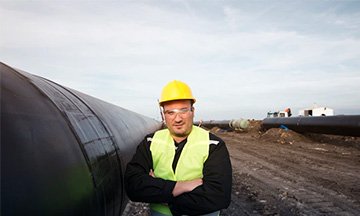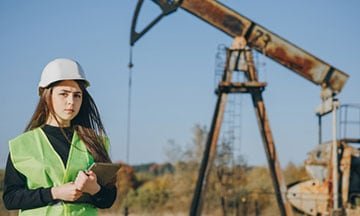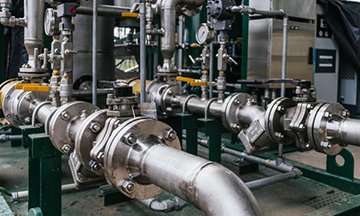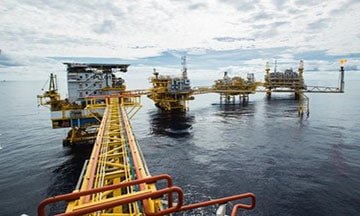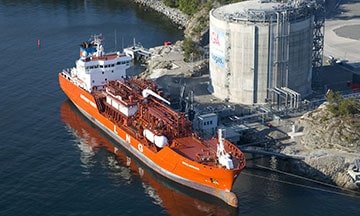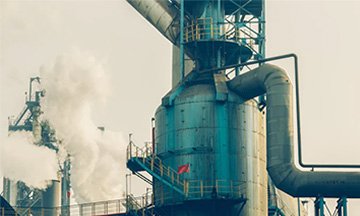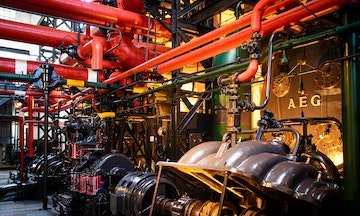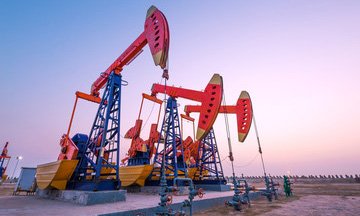Oil and Gas Surface Production Operations Facilities Training
| Date | Venue | Duration | Fees | |
|---|---|---|---|---|
| 20 May - 24 May, 2024 | Dubai | 5 Days | $4750 | Register |
| 03 Jun - 07 Jun, 2024 | Dubai | 5 Days | $4750 | Register |
| 24 Jun - 05 Jul, 2024 | Maldives | 10 Days | $9375 | Register |
| 08 Jul - 12 Jul, 2024 | Dubai | 5 Days | $4750 | Register |
| 05 Aug - 09 Aug, 2024 | Dubai | 5 Days | $4750 | Register |
| 16 Sep - 20 Sep, 2024 | Dubai | 5 Days | $4750 | Register |
| 22 Sep - 03 Oct, 2024 | Riyadh | 10 Days | $9150 | Register |
| 07 Oct - 11 Oct, 2024 | Dubai | 5 Days | $4750 | Register |
| 18 Nov - 22 Nov, 2024 | Dubai | 5 Days | $4750 | Register |
| 24 Nov - 28 Nov, 2024 | Doha | 5 Days | $4950 | Register |
| 02 Dec - 04 Dec, 2024 | Mauritius | 3 Days | $4250 | Register |
| 23 Dec - 27 Dec, 2024 | Dubai | 5 Days | $4750 | Register |
Course Overview
The oil and gas industry faces a challenge when it comes to accurate measurement, efficient production deferment, and enhanced integrated production planning. This course will train professionals on how to overcome these challenges and offer better surface production operations facilities.
What are surface facilities in oil and gas?
In the oil and gas industry, most people often perform routine practices and operations without considering and sticking to the standard and required practices. The main function of any job facility is to separate the Well stream into oil, gas, and water and make these products easily marketable and ready to be used or dispose them in an environmentally friendly manner. The separator equipment is the one responsible for the separation by flashing the gas from the liquids while the free water is efficiently separated from the oil. The process is called surface production operations.
This course will train the participants to generate production operations facilities requirements and promote safe practices in the oil and gas production operations. Some of the challenges that gas and oil production operations facilities face include; inefficient metering equipment and system, poor allocation of the main processes. It also includes weak or no deferment administration process. When these challenges are not correctly handled, they might just result in unreliable quality of oil and gas production that consequently will result in unreliable business cycles and field reserve estimation. This course is determined to train the best practices and standards found internationally and which ought to be followed.
What are production operations in oil and gas?
Production facilities must be able to accommodate adequately measuring different forms and collecting of samples of available crude oil. The accommodation can be automated with an automation tool by using a measuring gauging on a calibrated tank. Disposal of the produced water is also important because there are standards that guide water disposal. Participants of this course will be able to learn all these techniques and how to use modern tools and technology to accomplish this.
Few highlights in this Zoe course include the following:
- Integrated production
- Production deferment administration
- Integrated injection plan
- Production allocation and various methods of reconciliation
- Metering techniques
- Surface production overview
Course Objectives
Some of the objectives of this course include equipping the participants with the knowledge to:
- Review different parts of surface flowing well scenarios with the main aim of optimising the production process
- Promote safe and hazard free production process
- Understand and describe with great understanding the basic layout of any existing upstream producing facility and the main aim of its major equipment
- Describe a detailed facility design by clearly stating and giving the general outline requirements for treating and separating produced oil
- Have the ability to plan, design, and run an oversee routine operations maintenance work
- Carefully control site activities and control while maintaining safe operations by using good work practices
- Recognise and understand what to watch for in production operations practice
Training Methodology
This course will be facilitated by industry best and renowned professionals who are the voice of authority in their relevant fields. The course will be delivered through lectures with a combination of videos and audios. Case studies, individual and team exercises will be given to help in better understanding. All participants are encouraged to make this course participative.
This certificate course by Zoe will follow the ‘Learn-Apply-Review’ model of learning and competency-building.
Organisational Benefits
Organisations will benefit in the many of the following ways:
- Reduced operational cost with well managed surface production facilities
- Safety, regulation, and legislation adherence when operating surface production facilities
- Detailed knowledge of oil and gas surface production operations
- Increased productivity achieved through proper planning
- Thorough review of existing safety regulations and measures
- Application of advanced tools and technology to enhance the production operations
- Regular training of other employees on the industry’s best practices
- Detailed risk assessment of the facilities
Personal Benefits
Individuals that will be undergoing this course stands to benefit in the following ways:
- Enhanced foresight to plan and combat all possible risks that might arise in the facilities
- Better understanding and exposure to the working of surface production facilities
- A sense of pride contributing to organisational reduced operational cost
- Improved exposure and confidence to check existing conditions of the facilities
- Complete and detailed understanding of oil and gas surface production operations
Who Should Attend?
- Reservoir engineer
- Production operators
- Process engineers
- Planning engineers
- Asset manager
- Production engineers
- Field production personnel
Course Outline
Module 1: Mechanical design of pressure equipment
- Design main considerations
- Determining vessels wall thickness
- Design temperature
- Corrosion considerations
- Design pressure
- Allowable stress
- Pressure equipment specifications
- Pressure relief equipment
- Shop drawings
- Nozzles
- Corrosion protection
- Case study
Module 2: System configuration
- Separation
- Field with varying flowing tubing pressures
- Two-phase separators
- Initial separation pressure
- Three-phase separators
- Operating pressure
- Selection of stages
- Wellhead and manifolds
- Gas dehydration
- Pumps
- Oil treating and storage
- Compressors
- Process flowsheet
- Offshore platforms
- Equipment configurations
- Modular construction
Module 3: Principles in oil and gas surface production
- Physical properties
- Molecular weight calculations
- Apparent weight calculations
- Case studies
- Dry air molecular and apparent weight determination
- Gas specific gravity and density
- Getting volume of 1lb mole of the natural gas stream
- Basic oil-field chemistry
- Elements, compounds, and mixtures
- Atomic and molecular weights
- Hydrocarbon naming nomenclature
- Known liquid density and specific density
- Phase behaviour
- Multicomponent system
- Retrograde systems
- System components
- Lean gas systems
- Wet gas reservoir
- Dry gas reservoir
Module 4: Three-phase oil and water separation
- Horizontal separators
- Liquid “boot” horizontal separators
- Free-water knockout
- Vertical separators
- Coalescing plates
- Turbulent coalescers flow
- Design theory
- Oil-water settling
- Gas separation
- Retention time
- Water droplet size in oil
Module 5: Separator design
- Hall-full sizing in horizontal separators
- Gas capacity constraints
- Retention time constraints
- Oil droplets separation from water
- Seam-to-seam length
- Gas capacity constraint
- Retention time constraint
- Settling equation constraint
Module 6: Surface production operations
- Operations integration
- Tools supporting operations management
- Metering systems
- Introduction to surface production operations
- Overview of Well, reservoir & facility management process
- HCA applications
- Deferment coding
- Measurements
- General principles of deferment administration
- Principles of production allocation & reconciliation
- Populating and verification/validating process of data
Module 7: Crude oil stabilisation
- Principles of crude oil stabilisation
- Flash calculations
- Equilibrium considerations
- Stabiliser with reflux
- Cold-feed stabiliser
- Liquid hydrocarbon stabiliser
- Oil heater-treaters
- Trays and packing
- Packing
- Trays
- Trays or packing
- Stabiliser reboilers
- Stabiliser feed cooler
- Stabiliser-heater
Module 8: Produced water treatment
- Disposal standards and requirement
- Onshore disposal
- Offshore disposal
- Scale removal
- Characteristics of produced water
- Dissolved solids
- Calcium carbonate
- Iron sulphide
- Barium and strontium sulphate
- Dispersion
- Gravity separation
- Floatation
- Filtration
- Skimmer sizing
Module 9: Injection system
- Introduction
- Solid removal techniques
- Suspended solids removal
- Gravity settling
- Flotation units
- Filtration
- Diffusional interception
- Filter types
- Surface media
- Nonfixed-pore structure media
- Removal rating
- Beta rating system
- Nominal ratings
- Absolute rating
- How to choose the proper filter
- Pressure drops
- Void volume
- Coagulants and flocculation
- Temperature
- Nature of fluid
- Diatomaceous earth filters
- Vertical cylindrical gravity settlers
Module 10: Integrated production
- Integrated production workflow
- Business objectives for integrated production
- General and specific principles of production
- Strategy in generating robust plan linked to the business
